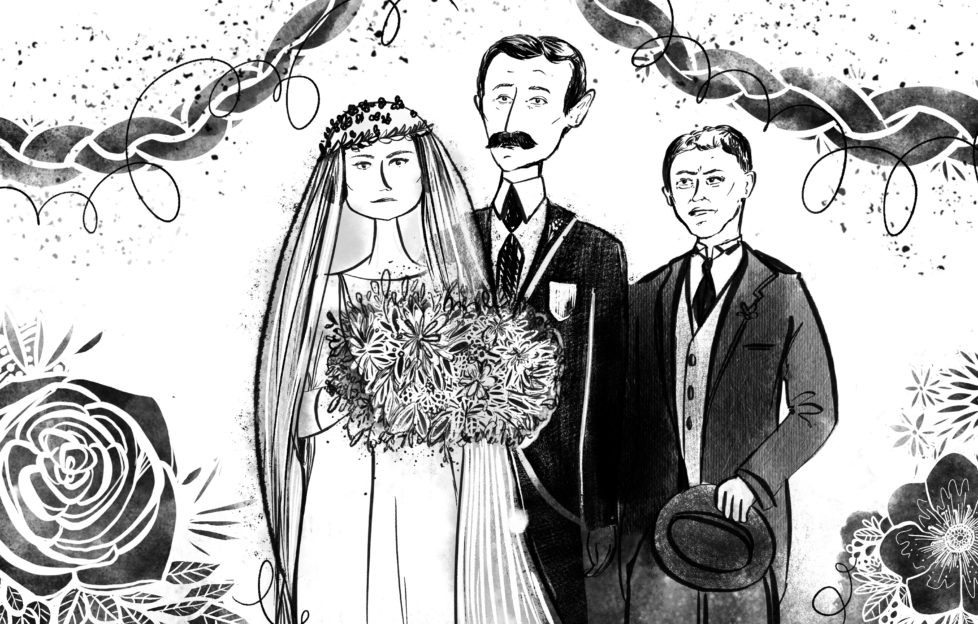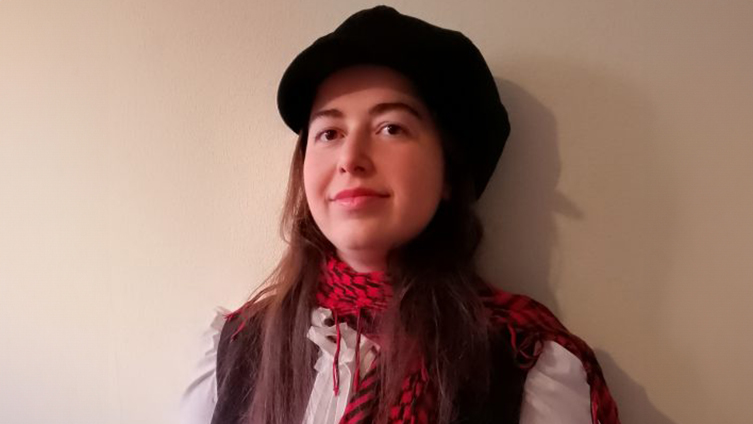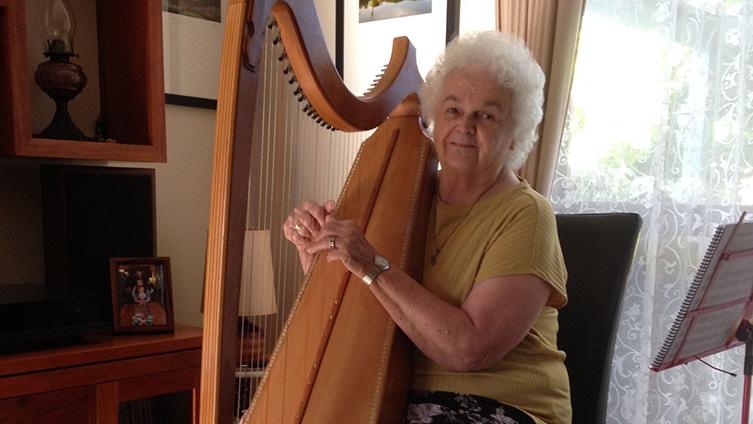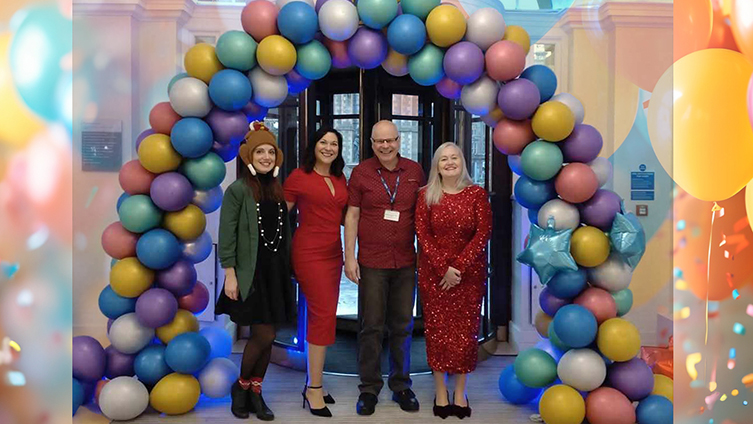
“Love And Pride” was first published in “The People’s Friend” in 1927.
As with the story we featured last week, it seems we neglected to list the author in the issue.
People were very modest in the Roaring Twenties, it seems!
We hope you enjoy!
The music of the last fox-trot died away. It was the end of the mid-winter dance of the local tennis club, and as most of the girls would not meet each other until the tennis season began, the ladies cloakroom was full of chattering girls.
Leslie Starr, gayest of the gay, tripped in, and laughingly waltzed her friend Ruby Manson around the room.
“You seem to have enjoyed yourself,” someone remarked. “Had the new minister anything to do with it? He gave you plenty of dances, I noticed.”
Leslie turned her bright grey eyes on the speaker.
“The minister?” she exclaimed with a slight curl of her lip. “He doesn’t interest me in the slightest. Can you imagine me presiding over a manse?”
Laughter answered her query, and Ruby Manson smiled at Leslie’s vehemence, knowing well the bitterness that prompted the question.
“Where’s my coat? Somebody of more importance than a mere minister will be wearing out his shoes and his patience if I don’t hurry,” and Leslie, bidding everybody “Good-night,” passed into the hall.
Awaiting her was Allan Keith; Allan, handsome, clever, grave, and just a little bit stern, had fallen in love with Leslie at first sight, and now they were engaged. He was a lawyer, but, clever as he was, he had a long way to go before he reached the top of his profession.
Leslie smiled up into his face as they went into the street and, passing a taxi-stance, Allan remarked carelessly, and with his usual economy of words, that there were plenty of taxis to be had. Leslie turned to him and, smiling bewitchingly, said, partly in jest, “I would like a taxi home, Allan; may we have one?”
Allan hesitated; when would they manage to be married, he wondered, if he threw away precious money on a taxi, especially when it was such a lovely night for a walk?
Her pleading face now wore a frown, and Leslie – his Leslie – said bitterly, “Oh, never mind, if you don’t wish to take one, I’ll walk.”
“I’ll easily get one for you dear.” Allan turned to tell the driver, but Leslie, with her head lifted proudly, had walked on.
Overtaking her, Allan in vain tried to make her talk to him. Her pride was terribly wounded, and she at last turned to him.
“I never before knew you were so greedy.” It was a cruel thrust.
“My dear,” protested Allan, “it’s for you that I save and scrape. If you love me, you must think better of me.”
“You can’t love me, else you’d have taken that taxi. I’m cold, and never want to see you again. I’ll manage to go home alone. Good-night.”
As Allan, stupefied, watched her go, a taxi over-took her, stopped, and the new minister alighted, spoke a few words to her, and then they both got in.
Allan watched the taxi disappear, and knew that Leslie Starr was being whirled out of his life, for he realised how great was the pride of the woman he had loved, and would always love.
***
One bright June morning, Leslie Starr stood at the altar with the Rev. Angus McRae, “the new minister”.
Like one in a dream, and looking straight before her, Leslie went through the ceremony, realising that she was far from being happy.
Pride had begun to take its toll.
The ceremony over, man and wife went down the aisle, and Angus, noticing the deathly pallor of his wife’s face, asked anxiously if she was ill.
“No,” she faltered, “I’m just a little bit tired with the heat,” and she bravely smiled as they passed through their crowd of friends, and approached the car that was standing at the kerb.
Happening to raise her eyes to where a bus had drawn up waiting to pass, the smile froze on her lips. Seated in the bus was Allan Keith, and his big grey eyes, cold and steely, held hers like a magnet.
For one brief moment the world seemed to stand still for these two souls, then, with an effort, Leslie stepped into the car and was followed by the man she had just promised to love, honour and obey.
“Well, my dear, that’s the worst passed now.” He took the cold hand on which the wedding ring glistened.
Vainly did Leslie struggle to answer, but no words could she utter. Seeing Allan had been a shock to her.
How exacting was pride in taking its toll.
At the hotel another crowd waited.
“Oh, why can’t people leave us alone?” asked Leslie
“Never mind, dear, you’l get plenty of free time and we’ll be quite alone when we reach Skye.”
“Skye!”
Skye, with its rugged grandeur, restlessness, and calmness; how symbolical of the nature of Allan.
Ruby Manson, sad-eyed, watched Leslie as she smilingly acknowledged the greetings of her friends, as she assisted her in fixing the string of pearls which was the gift of the bridegroom.
“Are you happy, Leslie, quite happy?”
“Do you think I could be happy? No, no, no, I can never forget, but I’ll do my duty; and there will be much to do in the parish to keep my mind occupied.”
Ruby stooped and kissed her friend. She sensed the terrible heartache.
Take a look at our Manon creating the wonderful illustration for this story:
The honeymoon for Leslie was a period of mute agony. Try as she would, she could never dissociate Skye with Allan, and both man and wife were glad when the month expired.
Angus, sensing all was not well, was puzzled and hurt.
Leslie had retired early on the night they arrived in Skye, and, going up some time later, Angus found her asleep, one hand resting under her chin, her face flushed and tear-stained. Thinking that it was just the result of the excitement of the day, he had stooped and reverently kissed her.
During the first twelve months of their married life Leslie was almost reconciled, for, if she did not love her husband, she certainly respected him. Then one day Angus was seriously injured in a car smash, and was brought home to die.
Before the end he recovered consciousness, and with a great effort spoke what had been on his mind for many days.
“I hope you’ll forgive me, Leslie; I did my best, but I should have known your love for another would never die. When I am gone, dear, I hope you will both be happy.”
Leslie was all alone; this, she knew, was another payment to the account of pride.
***
It was six months later, and Allan Keith was passing a book-shop from which Leslie suddenly emerged.
He had heard of the death of Angus McRae, and this meeting was so unlooked for that some time passed before either could say anything.
At last Leslie broke the silence.
“Well, and how are you getting on?” The formal greeting was, in the circumstances, pardonable.
“Very well indeed,” Allan managed to say. “But what have you been doing lately?”
Leslie looked away.
“I am just completing training as a missionary. I leave for Central Africa next week.”
Completely at a loss for words, Allan longed to take her hand in his and plead with her to remain with him.
Leslie saw the old hurt look come into his eyes, and her pride, which had died long ago, no longer stood between them.
“Allan, can you ever forgive me for my behaviour on that night we parted?”
“Leslie, forgive you! Why, I’ve forgiven you long ago, but I never have ceased to love you.
“Would you think me a presumptuous fool if I asked you to give up your work, so that we may help each other to forget the past?”
Leslie lifted starry eyes to his, and answered as he wished.
As they stood there, Angus McRae’s shadow seemed to hover round and bless them.
Leslie’s account with pride was closed.
Click here to read more of our fantastic Fiction content.
Click here to delve into our dramatic Daily Serial.




